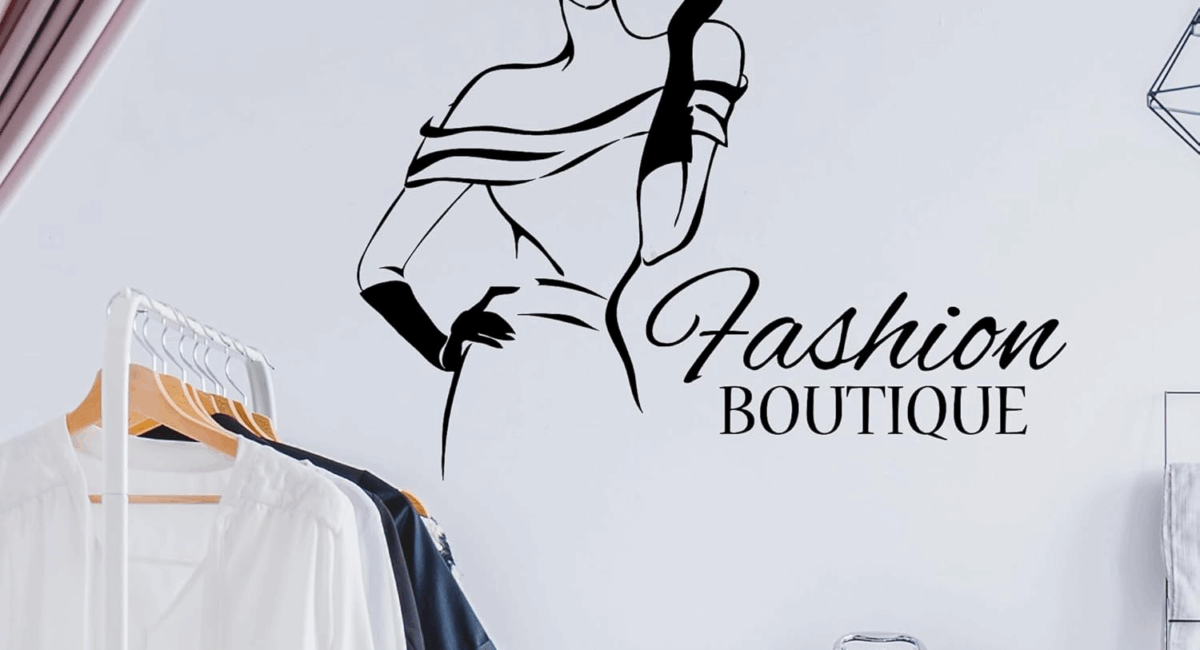The Cost of Starting a Fashion Boutique in Nigeria: A 2025 Guide – THE PRICE

Hey Naija entrepreneurs!
If you’re reading this, chances are you’ve been bitten by the fashion bug. You’ve probably seen the likes of Toke Makinwa slay in a custom outfit or scrolled through Instagram admiring the sleek pages of boutiques like Laiose or Kai Collective, and you thought to yourself, “I can do this too!”
And you know what? You absolutely can.
But before you dive headfirst into buying aso-ebi and renting a shop in Lekki, let’s have a real, down-to-earth talk. Starting a fashion boutique in Nigeria is an exciting venture, but it’s also a business. And like any business, it requires planning, strategy, and most importantly, a clear understanding of THE PRICE.
I’ve just spent weeks digging through data, talking to boutique owners, scouring Alibaba, Jumia, and even Twitter (X) to bring you this ultimate 2025 guide. We’re going to move from “Shouting ‘Hey Barbie’ on social media” to actually building a profitable brand.
Forget the fluff. Let’s talk real numbers.
The Two Major Paths (Choose Your Own Adventure)
Before we talk money, you need to decide on your business model. The cost varies massively depending on which path you choose.
- The Online-Only Boutique (The Starter Pack): This is where most people start in 2025. Your shop is on Instagram, TikTok, WhatsApp, and a simple website. Your overhead costs are significantly lower. You can run it from your room while keeping your 9-5.
- The Brick-and-Mortar Boutique (The Pro Level): This is a physical store. It comes with higher prestige, foot traffic, and much higher costs (rent, electricity, shop attendants, etc.).
We’ll break down the costs for both, but our focus will be comprehensive, covering everything you might need.
The Non-Negotiable Startup Costs (Registration & Branding)

You can’t just start slinging dresses without making it official. Trust me, you don’t want the government to come knocking later.
- Business Name Registration with CAC (Corporate Affairs Commission): As of my latest check in early 2025, the cost for registering a business name (for small businesses) is between ₦25,000 – ₦40,000. This often includes the fee for a lawyer or an accredited agent who will handle the process for you. Don’t try to do it yourself to save ₦10k; the stress is not worth it.
- Brand Identity: Your brand is more than just a name. It’s how people recognize you.
· Logo Design: You can find talented Nigerian designers on Twitter or Fiverr. Prices range from ₦10,000 – ₦50,000 for a simple, professional logo and brand palette.
· Business Cards & Tags: Physical touchpoints matter. Customized clothing tags with your logo (to sew into your pieces) and business cards could set you back ₦15,000 – ₦30,000 for your first batch.
· THE PRICE Advice: Don’t overspend here at the very beginning. A clean, simple logo is better than a fancy, expensive one. You can always rebrand later.
Total for Section 1: ≈ ₦50,000 – ₦120,000
The Heart of Your Business – Inventory (Stock) Cost

This is where the big money goes. Your stock is your lifeblood. The cost here depends entirely on your niche (children’s wear, luxury menswear, affordable ladieswear, etc.), your source, and your quality.
Where will you source your goods?
· A. Local Markets (Balogun, Yaba, Ariaria): The classic choice. You can physically inspect the goods, but you need strong bargaining skills.
· Cost of a good quality ladies’ gown: ₦8,000 – ₦20,000
· Cost of a pair of jeans: ₦5,000 – ₦12,000
· Cost of a nice top: ₦4,000 – ₦10,000
· Pros: Immediate pickup, no shipping stress.
· Cons: Everyone else is shopping there, too. Uniqueness can be a challenge.
· B. Importing (Turkey, China, Dubai): This is where you get unique pieces. The process is more complex but can be more profitable.
· Cost Breakdown:
· Cost of Goods: A dress might cost $10 – $25 (₦15,000 – ₦37,500 approx.) per unit from a supplier on Alibaba or from a buying trip to Turkey.
· Shipping & Logistics: This is the killer. For a 50kg carton from Turkey via air freight, you could be looking at ₦150,000 to ₦250,000 for shipping and clearance costs alone. Sea freight is cheaper but slower (can take 2-3 months).
· Customs Duty: This is a variable cost that your clearing agent will handle. Budget an extra 20-30% of the goods’ value for this and other port charges.
· Pros: Unique inventory, potentially higher profit margins.
· Cons: High upfront cost, risk of customs issues, risk of receiving subpar goods.
· C. Working with Tailors (Custom Pieces): You design the clothes and have them made locally.
· Cost of making a dress: ₦7,000 – ₦25,000+ (depends on fabric and complexity).
· Cost of Ankara fabric (6 yards): ₦12,000 – ₦30,000 for high-quality.
· Pros: Unique, you control the quality.
· Cons: Time-consuming, requires a reliable tailor, and scalability issues.
How much inventory should you start with? For beginners, avoid going broke by stocking up. Start small to test the market.
· Mini Starter Pack (Online Focus): 20-30 pieces of mixed items (tops, bottoms, dresses). Estimated Inventory Cost: ₦200,000 – ₦500,000
· Standard Startup (Physical Store): 50-100 pieces to adequately fill a store. Estimated Inventory Cost: ₦500,000 – ₦1,500,000
Total for Section 2: ≈ ₦200,000 – ₦1,500,000+ (This is your biggest variable).
The Operational Costs (How You Sell)

This is where the online vs. physical store split becomes very clear.
The Online-Only Boutique Costs:
· Smartphone with a Good Camera: You already have this, right? If not, a decent mid-range phone costs ₦150,000 – ₦300,000.
· Data & Airtime: For uploading content, engaging followers, and running ads. Budget ₦10,000 – ₦20,000 monthly.
· Lighting Setup: A simple ring light and backdrop can cost ₦20,000 – ₦50,000.
· E-commerce Platform: A simple Instagram shop is free. A more professional website on Shopify or WordPress with e-commerce functionality costs ₦10,000 – ₦30,000 monthly ($15-$40).
· Packaging: This is crucial for the unboxing experience. Customized mailers, tissue paper, thank-you cards. Budget ₦500 – ₦1,000 per package.
· Delivery Logistics: The cost is usually borne by the customer. You just need to partner with dispatch riders (GIG, Bolt) or delivery companies (GIGL, DHL).
Monthly Running Cost for Online Boutique: ≈ ₦15,000 – ₦50,000 (excluding one-off purchases like a phone).
The Physical Store Boutique Costs:
This is a whole different ball game.
· Shop Rent: This is your biggest recurring cost. It varies WILDLY.
· A small shop in a moderately populated area (e.g., Ikeja, Surulere): ₦150,000 – ₦400,000 per annum.
· A standard shop in a high-traffic area (e.g., Lekki Phase 1, Victoria Island): ₦1,000,000 – ₦3,000,000+ per annum. Yes, you read that right.
· Landlord Agreement: You’ll typically pay 2-3 years’ rent upfront. This is a massive capital outlay.
· Shop Renovation & Furnishing: You can’t just move into an empty shop.
· Painting, lighting, tiling: ₦200,000 – ₦500,000+
· Clothing racks, shelves, mannequins, counter, mirror: ₦150,000 – ₦300,000
· A/C Unit (Very Important!): ₦250,000 – ₦400,000
· Security (burglarproofing, maybe a security door): ₦150,000 – ₦300,000
· Recurring Monthly Expenses:
· Salaries (1-2 shop attendants): ₦40,000 – ₦80,000 per attendant monthly.
· Electricity (Generator/PHCN): ₦20,000 – ₦50,000 monthly for fuel and bills.
· Security (if in a plaza): ₦5,000 – ₦15,000 monthly.
· Cleaning: ₦5,000 – ₦10,000 monthly.
One-Time Setup for Physical Store: ≈ ₦750,000 – ₦1,500,000+ (excluding rent advance) Monthly Running Cost: ≈ ₦70,000 – ₦155,000+
The Marketing & Advertising Cost

“If you build it, they will come” is a lie in the boutique business. You have to shout it from the rooftops.
· Social Media Ads (Instagram/Facebook): The most effective tool. A budget of ₦10,000 – ₦50,000 per week can get you significant reach and sales if your content is good.
· Influencer Marketing: Sending free pieces to nano-influencers (5k-20k followers) can cost just the price of the item. Micro-influencers (50k-200k followers) might charge ₦20,000 – ₦100,000 per post.
· Photoshoots: Hiring a model and photographer for a day to get professional content can cost ₦50,000 – ₦150,000.
· Content Creation: You are your own best model. Budget for data, small props, and maybe a freelance content creator.
Monthly Marketing Budget (Recommended): ≈ ₦20,000 – ₦100,000
The Grand Total: Let’s Do the Maths
Alright, let’s bring it all together. Here’s the estimated price range for starting a fashion boutique in Nigeria in 2025.
Path A: The Lean Online Boutique (Starting from Home)
· Registration & Branding: ₦70,000
· Initial Inventory (30 pieces): ₦300,000
· One-Time Setup (Phone, Lighting): ₦200,000
· Grand Total Startup Cost: ≈ ₦570,000
This is a realistic minimum for a serious, professional-looking online start-up.
Path B: The Standard Physical Boutique
· Registration & Branding: ₦100,000
· Initial Inventory (70 pieces): ₦800,000
· Shop Rent (2 yrs advance for a ₦250k/yr shop): ₦500,000
· Renovation & Furnishing: ₦400,000
· Grand Total Startup Cost: ≈ ₦1,800,000
And this is on the very conservative side for a physical store in a decent location.
THE PRICE Verdict: As you can see, you can start an online boutique with under ₦600,000, but a physical store will easily require 2 Million Naira and above to start properly. Many people underestimate this and end up with a half-empty shop they can’t afford to run.
Final Advice from THE PRICE: How to Start Smart
- Start Online, Always. Use Instagram and WhatsApp. Test your products, build a loyal customer base, and understand what sells before you even think about a physical store. The market will tell you what it wants.
- Your Business Plan is Your Bible. Write it down. Who is your target customer? What is your unique selling point? How will you make money? How will you handle slow sales? Answer these questions.
- Separate Your Money! Open a separate business account. The money from sales is for restocking and paying bills, not for buying aso-ebi for your cousin’s wedding.
- Build a Community. Don’t just sell; engage. Talk to your customers. Ask for feedback. Run polls on your Instagram story. Make them feel like part of your brand’s journey.
- Focus on Good Customer Service. In Nigeria, this is a superpower. Respond to DMs quickly. Handle complaints with grace. Package items nicely. A happy customer will come back and bring her friends.
Starting a fashion boutique in Nigeria is not a get-rich-quick scheme. It’s hard work. But with passion, a solid plan, and a clear understanding of THE PRICE, you can turn your dream of being a fashion entrepreneur into a thriving, profitable reality.
You fit do am!
Got more questions? Drop them in the comments below. Let’s build together.



Leave a Comment